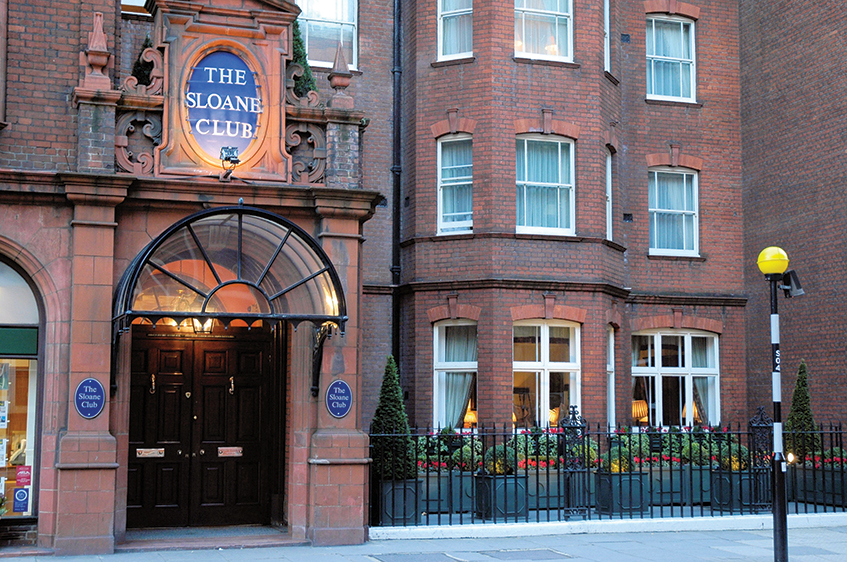Clearbell Capital has closed its third UK fund after raising £310m with the intention of targeting “quirky” beds, the “reverse ripple” in London and “recovery assets”.
It is the first fund to be raised this year focusing solely on the UK in a fund management market dominated by pan-European mandates and overshadowed by consolidations and sell-outs by other fund managers.
“It was bloody hard work,” says senior partner Manish Chande, but “a great result in the context of it all”.
The fund – Clearbell Property Partners Fund III – will target net returns of 12-14% and will have gearing of around 40%, giving it close to £450m of total spending power.
Around 25% of the money for the fund is from North America, 25% is from Australia, and 10% is South African. Most of the remaining capital comes from the UK and Europe.
Challenges
Chande said selling a UK value-add fund to investors had been a challenge on a number of fronts.
“If you look at investors globally, trying to sell the UK has been a real challenge because of the whole Brexit scenario, then you overlay onto that the uncertainty of the political situation,” he says.
Clearbell is one of only a handful of independent UK fund managers, alongside Frogmore and Moorfield, both of which are also raising new funds.
Mayfair Capital, Rockspring, Tristan Capital, Brockton, M7 Real Estate and Internos have all either hoisted the for-sale flag or undertaken a corporate deal in the past 12 months.
Alongside a shift towards the creation of larger fund management firms better suited to handle regulation and lower fees, the value-add space has declined in the past 12 months as managers shift to core-plus and more defensive assets.
Although £110m has already been committed from the new fund, Chande says the intention is to be cautious about deploying capital.
“Because [investors] were saying ‘why don’t we wait?’, we have invested some, but we are probably going to keep our powder relatively dry for the moment. We are probably going to do the odd things – we quite like the retail warehouse space, for example – but we have another 18 months to two years. We don’t have to rush.”
As a result, the fund will have a slightly longer lifespan than the average model – an eight-year life with the potential for two one year extensions, as opposed to the more common five-year term with two one-year extensions.
Clearbell was launched in 2007 and has three active funds and around £1.5bn under management. While the new fund follows Clearbell’s value-add roots, £200m of Clearbell’s AUM are now held in segregated mandates pursuing different strategies.
“We are beginning to look at different products,” says Chande.
“Although value-add is higher-return, there is then the core and core-plus space, and another space called manage to core where you can probably get 10-11%, so as a business, instead of being a one-trick pony, we have started to diversify.”

What will Clearbell’s new fund target?
The strategy for the new fund will be fourfold.
Firstly, the fund will invest in what Chande describes as “ballast” – cash-on-cash investments – predominantly light industrial and secondary logistics.
Secondly, it will target recovery assets: those too small for the larger investors, but which Clearbell will aggregate into portfolios and then sell on when it exits.
As part of this element it bought a £20m portfolio of three industrial assets from Helical earlier this year.
Less conventionally and in preparation for a slowdown, as the London market deteriorates, it will be heading back into the capital in what Chande calls the “reverse ripple”.
“What we have begun to notice is the bid offer spreads are still a bit wide, but they are narrowing,” he says.
“There are a number of little examples beginning to emerge, so not now but in the coming months, and particularly as the Brexit noise increases.”
Finally, the fund will be looking into the “quirky” beds market.
“The fourth area is beds, but I am not convinced about residential (PRS) at the moment myself,” says Change.
“Where we think has relevance is we bought the Sloane Club, just off Sloane Square. It’s a club rather than a hotel but it has 140 bedrooms; you have a membership who are paying you up-front, so before you even open the door you have an income stream.”
To send feedback, e-mail alex.peace@egi.co.uk or tweet @egalexpeace or @estatesgazette











